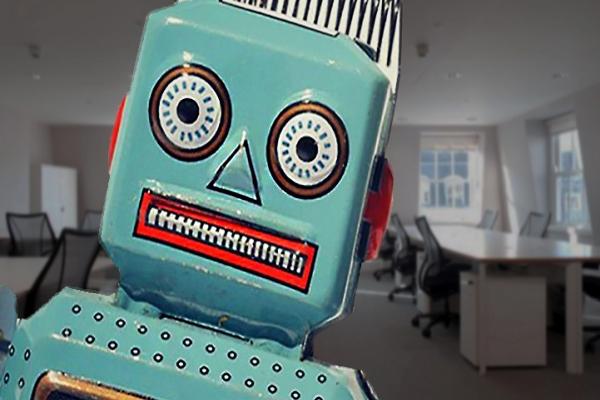Published on the 08/11/2017 | Written by Jonathan Cotton

It’s a brave new robot-powered world – for better or worse…
Once upon a time (the 1960s, let’s say) robot technology seemed to promise two clearly defined and easily understood things: One, a new era of leisure where our every whim, desire and burden was taken care of by willing robotic servants, harnessed, as they were, for our every comfort.
Number two was man’s premature demise at the hands of his own mechanical creations.
Things didn’t work out like either of those scenarios (more’s the pity), so instead we’re now coming to terms with the slightly more nuanced realities of 2017, which sees AI, robotics and a whole new world of next-level smart tech nibbling at the corners of daily life.
It’s not that staggering tech isn’t already here – Facebook on-demand and the whimsical genius of Apple Maps are much appreciated – but as the realities of robot tech’s intrusion into the domestic and labour spheres becomes ever more apparent, we’re starting to ask ourselves a few of the harder questions about the nature of work, leisure and exactly where we fit into this brave new world.
A survey released last week does a good job of illustrating this tension.
The data was collected by YouGov from a thousand plus people and shows a populace happy to invite robots into their domestic lives but anxious about ramifications in the employment market.
“Despite being able to see the benefits that robots could bring, Aussies also recognise the threat they pose to people’s employment prospects,” said the survey.
“Three-quarters of Australians agree that robots will take jobs away from many of them. However, many do not currently feel personally threatened by robots in the workplace, with only one in ten believing that a robot would be better than them at their job.”
It’s a strange statistic: 67 percent of Australians think that robots are going to disrupt the labour market but only for people less competent than they are? Make of that what you will – shades, perhaps, of the Dunning-Kruger effect?
But the new canary in the coalmine is surely the millennial, and it’s them who are taking a dimmer view of their new robotic peers. Almost one half of 18-29 year olds believe a robot could do their job either the same as or better than them.
“While 37 percent of those aged 18-29 think that a robot would not be better them at their job, nearly six in ten of those over 45 do [sic].”
Whoever wrote that excruciating sentence should be one of the first automated away, but the point is still made: Workers, especially the young, tech-savvy contingent, identify a threat in a coming automation inundation.
So, next steps? According to the survey, nearly eight in ten Aussies agree that robots should be “regulated carefully” (whatever that means – Bill Gates reckons we should tax the little blighters), suggesting that “regulators will have to forge a new and difficult path that seeks to maximise the benefits of new technology without reducing citizens’ opportunities and/or income”.
Yeah, good luck with that, everyone.
Better to make peace with it now: Huge numbers of people are going to be automated out of a job – Almost half the activities people are paid to do could be automated away right now, according to McKinsey. And as the swell approaches, it does no-one favours to pretend that unskilled workers are going to be the ones benefiting.
Case in point, efficiency gains: As technology has improved efficiency over the years, the benefits have been huge – just not for workers. According to the Economic Policy Institute, even though productivity has skyrocketed (74 percent growth between 1973 and 2013), wages have inched up by just 9 percent over the same period.
If worker productivity can go up and worker wages stay down, the automation revolution can come without the benefits of that revolution to the fleshy appendages being replaced. See National Australia Bank shedding 6000 jobs as it reports a profit of $5.3 billion for more information.
So just who is going to be insulated from the robotic onslaught and who’s getting ctrl+alt+deleted?
According to McKinsey, 78 percent of ‘predictable physical work’ is ripe and ready for robotic rightsizing, and, specifically, it’s the physical work of the accommodation/food service industries and manufacturing that will be first to go.
After ‘predictable physical work’, it’s data processing (69 percent), data collection (64 percent), and then a big drop off to unpredictable physical work and stakeholder interactions (25 and 20 percent respectively).
Who’s getting out unscathed? ‘Managing others’ and ‘Applying Expertise’ win out. (Download the short but fascinating infographic.)
Time marches on and we’ve all got to march with it, but let’s not kid ourselves here.
And there sure are plenty of great things to look forward to: Robot enhanced surgery? Bring it on. Dangerous and disgusting jobs (I’m looking at you, London underground fatberg)? Good riddance.
And the average Australian sees that too, with most happy to welcome robots into their lives.
“Out of a list of twelve possible functions, the most popular use for a robot is to help with cleaning the house, which seven in ten would want. Other popular choices include security (chosen by 55 percent of respondents) and gardening (selected by 43 percent).”
The future is bright, but it gets brighter the closer you get to the white-collar, ‘thinky’ end of the scale. For the other, low-skilled end? That’s a little more uncertain.
Morose, yes. But there’s little to be lost in contemplating these things. And surely an acknowledgment of the actual effects that the coming automation revolution is going to bring is a small price to pay for such immense gains.



























